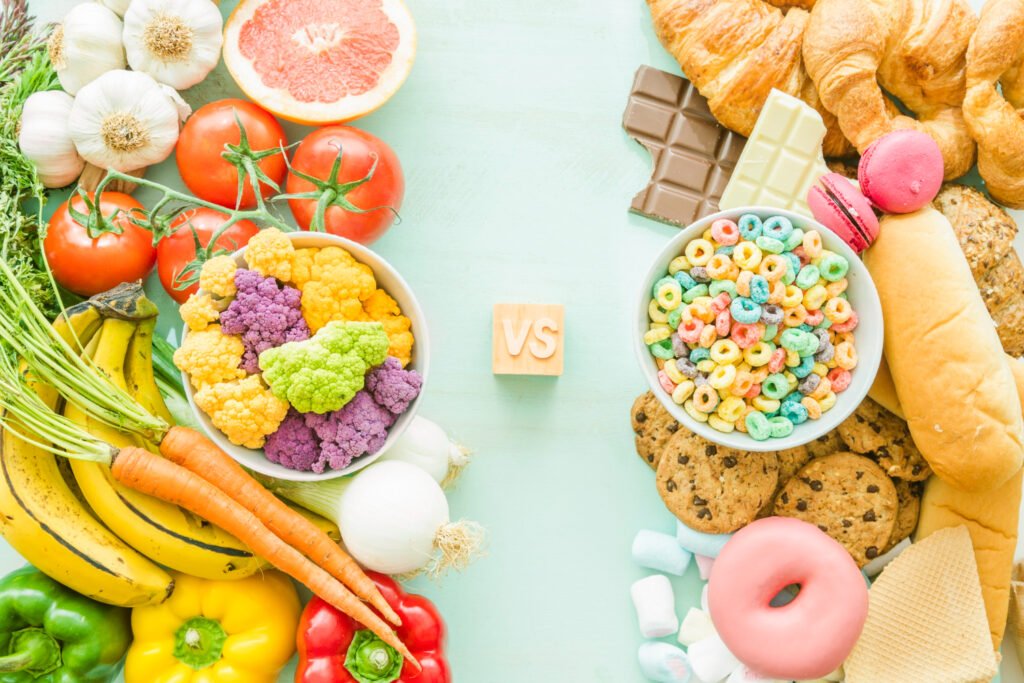In today’s health-conscious world, two diets dominate the conversation: Plant-Based and Keto. Both promise weight loss, better energy, and improved health — but they take opposite approaches. So, which one is right for you?
Whether you’re aiming to lose fat, build muscle, boost energy, or improve long-term wellness, this article will help you compare plant-based and keto diets side by side, so you can make a smarter choice for your body and goals.
???? What Is a Plant-Based Diet?
A plant-based diet emphasizes whole, minimally processed foods from plants. That means fruits, vegetables, legumes, whole grains, nuts, and seeds — and often excludes or limits animal products.
✔️ Pros:
- High in fiber, vitamins, and antioxidants
- Supports heart health and reduces inflammation
- Linked to lower risks of diabetes, high blood pressure, and some cancers
- Often more sustainable and eco-friendly
⚠️ Cons:
- Can lack vitamin B12, iron, omega-3s, and complete proteins if not well-planned
- Some people may struggle to feel full or satisfied at first
- May require more food prep and planning
???? What Is the Keto Diet?
The ketogenic (keto) diet is high in fat, very low in carbs, and moderate in protein. It aims to switch your body into ketosis, a metabolic state where you burn fat instead of carbs for fuel.
✔️ Pros:
- Promotes rapid fat loss and reduced appetite
- May improve mental clarity, energy, and focus
- Can help regulate blood sugar and insulin sensitivity
- Reduces cravings due to steady blood sugar levels
⚠️ Cons:
- Restrictive: bread, pasta, fruits, and many veggies are off-limits
- Can cause “keto flu” during the adjustment phase (fatigue, headaches, irritability)
- May raise cholesterol in some individuals
- Hard to maintain long-term for some people
???? Which Diet Works Best for Your Goals?
Let’s break it down by health goals:
???? 1. Fat Loss
- Keto may help with fast initial weight loss due to lower insulin levels and water weight loss.
- Plant-based helps with sustainable fat loss thanks to high fiber and low-calorie density.
Winner:
- Short-term: Keto
- Long-term & sustainable: Plant-based
⚡ 2. Energy & Mental Clarity
- Keto can lead to stable energy once your body adapts to fat as fuel.
- Plant-based diets can boost energy too — if rich in complex carbs, not just veggies.
Winner:
- Tied — depends on how well each diet is executed.
❤️ 3. Heart Health
- Plant-based diets are strongly linked to lower cholesterol and blood pressure.
- Keto may raise LDL (“bad”) cholesterol in some people, though it lowers triglycerides.
Winner:
- Plant-based (especially whole-food, low-oil versions)
????️ 4. Muscle Building & Fitness
- Keto preserves muscle if protein is sufficient but may limit performance in high-intensity workouts.
- Plant-based diets support muscle growth with adequate protein sources (lentils, tofu, tempeh, etc.).
Winner:
- Plant-based, if well planned for protein intake
???? 5. Sustainability (For You & the Planet)
- Plant-based eating is widely recognized as better for the environment.
- Keto is harder to sustain long-term for many due to its strict restrictions.
Winner:
- Plant-based
???? Final Verdict: Choose What Works for YOU
There is no one-size-fits-all diet. Here’s a quick guide:
| Your Goal | Best Pick |
|---|---|
| Quick Fat Loss | Keto |
| Long-Term Health | Plant-Based |
| Heart Protection | Plant-Based |
| Consistent Energy | Tie |
| Athletic Performance | Plant-Based |
| Simplicity | Keto (but harder to sustain) |
Bottom Line:
Choose the diet you can stick with — one that aligns with your values, preferences, and goals. Both diets can work if done right, and neither is magic without consistency.
Tip: Try a flexible hybrid approach — focus on whole plant foods while limiting refined carbs and added sugars, and see how your body responds.

